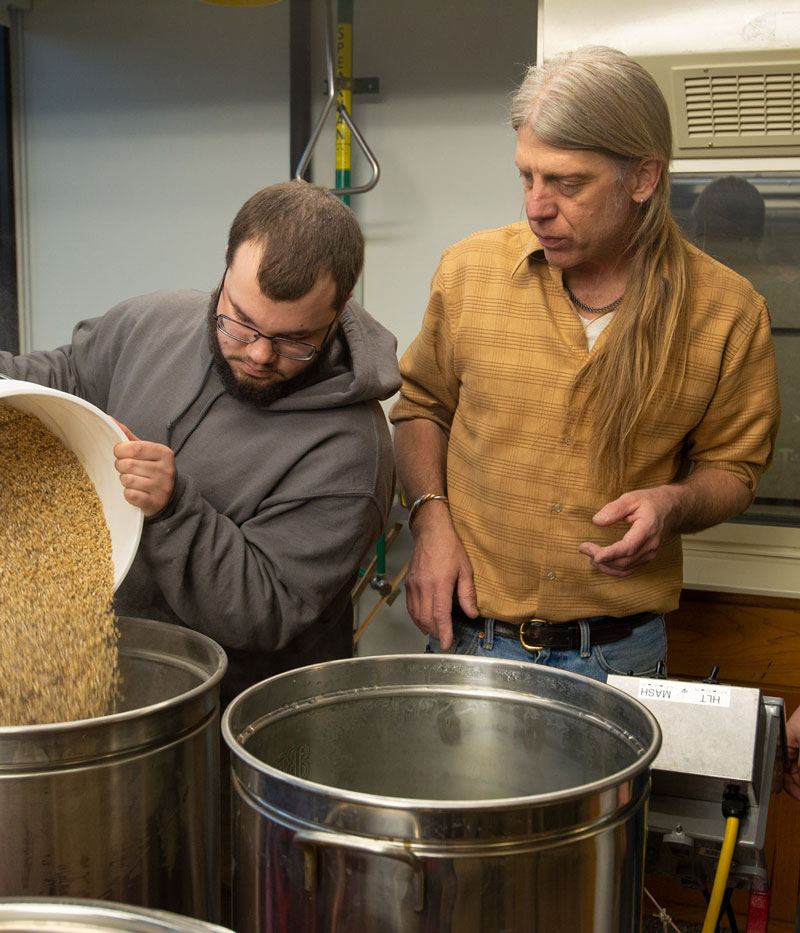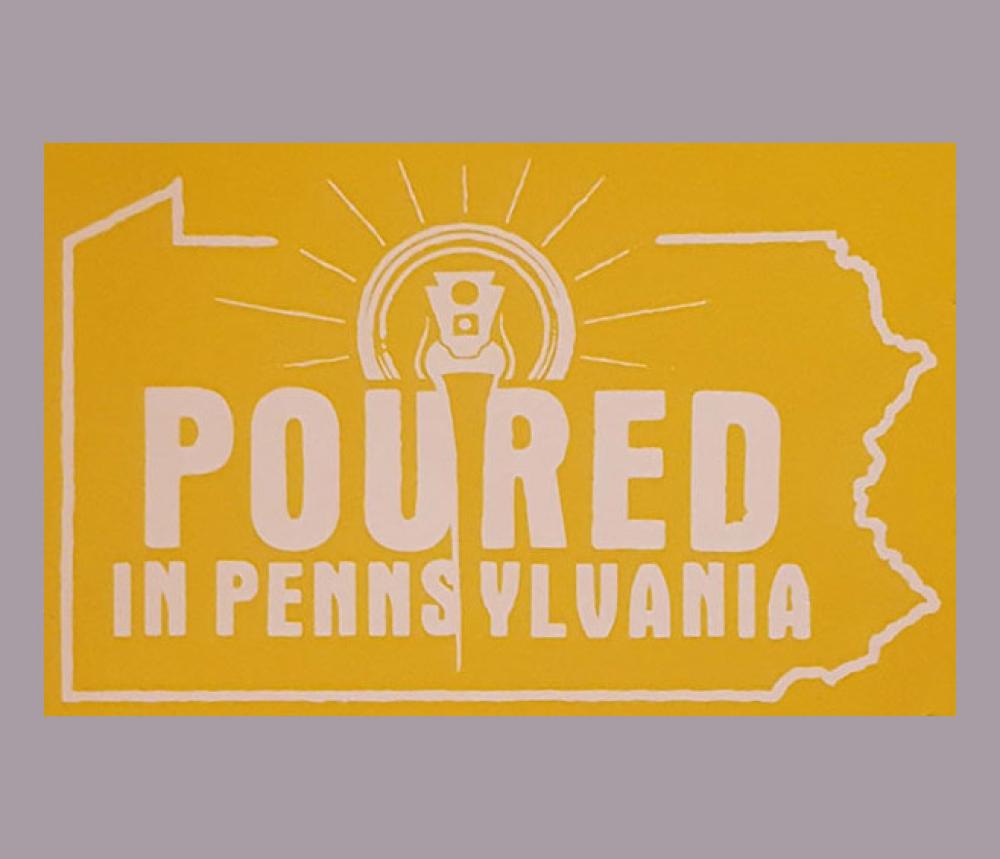"The brewing industry needs more people with a solid foundational knowledge who can enter the workforce as an immediate asset to any organization."
He’s won multiple medals including a gold at the renowned Great American Beer Festival in Denver. He also built a brewery in Times Square. Today, you’ll find him sharing his knowledge with aspiring brewers – in a lab at Penn College. Beyond brewing science and technology, Tim's know-how includes the daily rigors of the profession as well as the history and tradition of brewing – plus a healthy splash of philosophy.

I started home brewing in college. Once I discovered the way brewing connected so many things that excited me, I was hooked. Brewing is the intersection of practical mechanics, science and art. A successful brewer possesses a passion for knowledge.
Brewing has been going on for centuries. Brewing spans the globe and has influenced virtually every culture in some way. Beer has been linked to the evolution of organized society and the emergence of entire economies. Beer has brought people together throughout history. The pursuit of better beer has driven scientific discovery. Breweries have a major economic impact on every community they exist in. Most people agree on this: Beer is good!
I want to contribute to the sustainable, healthy growth of the brewing industry by handing down to my students the technical and scientific knowledge behind brewing, while also building an appreciation for the important impact the brewing industry can have on the economy and communities as it continues to provide jobs and bring people.
Through my experiences, education, and personal approach to brewing, I have a developed an incredible respect for the antiquity and tradition of the craft. I enjoy instilling that respect in my students even as we engage in very modern, science-driven inquiry resolution.
We’re surrounded by it all, from small craft breweries like New Trail and Elk Creek to mid-size, regional breweries like Tröegs and Victory, to the large ones like Yuengling, Straub and Sam Adams. Pennsylvania is home to two of America’s oldest family-owned, independent breweries. Every facet of the brewing industry is represented, from the hand-crafted, artisanal process to high-volume production.
It only makes sense that Pennsylvania would have the educational component, too. We have a lot of nearby resources that provide our students opportunities to engage with the industry directly. Whenever possible, I incorporate field trips that put our students on-site at regional breweries. We are also a state that provides opportunities to visit malt houses, barley fields and hops farms.
You have to be a scientist, physicist, and artist to be a brewer. Students learn not just the science and metrics of beer, they gain an understanding of the entire physical process, the challenges of designing an efficiently functioning brewery, as well as the communication and organizational skills needed to succeed. As often as possible, we take a look at functioning breweries from the facility standpoint. We meet brewers and have the opportunity to ask questions like, ‘If you could change one thing, what would it be?’ and ‘What are your biggest challenges?’ These outings help to inform the learning process.
Penn College is really focused on industry trends, and the College was aware of the growing craft beer industry. The College’s practical, hands-on, experiential teaching approach is what the brewing industry is looking for. Brewers who are hiring struggle with the immense amount of time and effort it takes to train employees who have no background in the profession. Initially, new hires with no educational or experiential background in brewing are essentially a liability. So, what we’re doing is producing individuals who can enter the brewer’s work environment and make an immediate contribution.
Tim is an industry expert. He knows all the ins and outs of brewing. So we asked him, "What makes a successful brewer?" Here's his recipe.

The Machine
First, a brewer must have a practical understanding of how things work in the physical world in order to understand and control the complex machine we call a brewery.
The Science
Secondly, a brewer must have a firm grasp of both inorganic and organic chemistry as well as biology and microbiology in order to manipulate and control the complex and dynamic natural systems at work when producing beer.
The Aesthetic
Then, this knowledge must all be tied together by an artist’s aesthetic; born of an awareness of and respect for the long history and deep traditions connected to beer making.
The Taste
Finally, a brewer must have good taste and the ability to taste critically. As far as I am concerned, the beer itself is simply a nice bonus. Brewing is the true reward.

"The brewing industry needs more people with a solid foundational knowledge who can enter the workforce as an immediate asset to any organization."
Tim Yarrington

Considered an expert in his field, Tim was featured in a film showcasing the craft beer industry in Pennsylvania. Poured in PA was released to a select group of ticket holders during the Billtown Brewfest.
Tim presented "The Piracy of Brewing: How Brewers Exploit Natural Systems for Personal Pleasure and Financial Gain" in spring of 2020 at Susquehanna University at the colloquium, which focused on the topic of alcohol as part of the centenary of Prohibition.

Learn from award-winning faculty and craft the career of your dreams in this accelerated one-year program.
Unsure which major is right for you? See all academic programs at-a-glance.